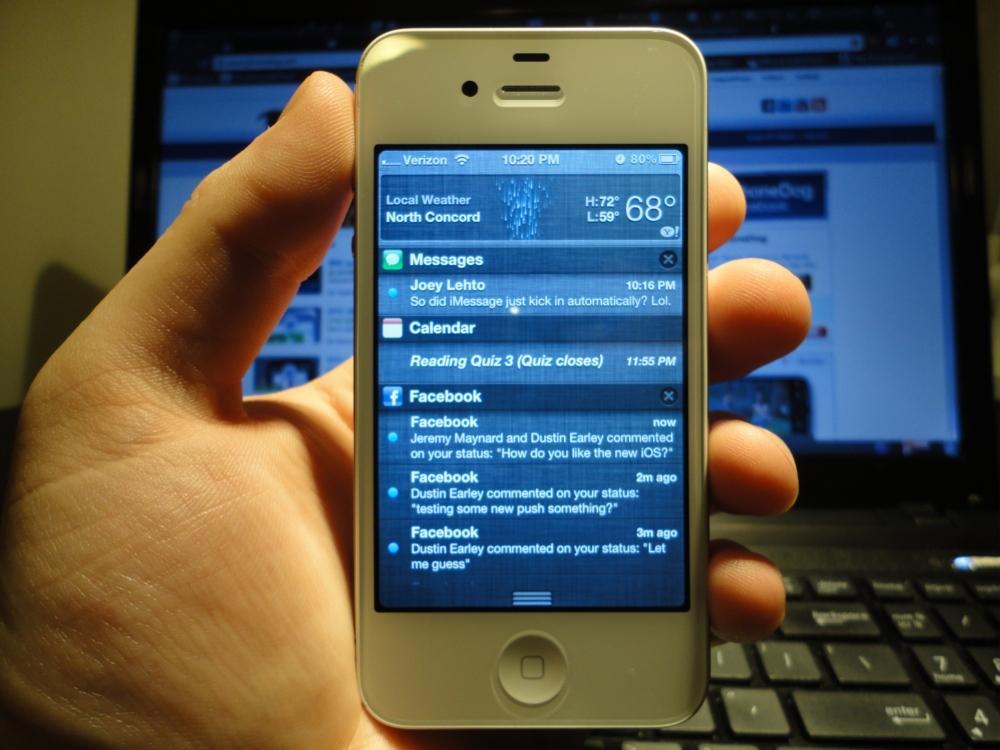
One of the most exciting times of the year for us tech enthusiasts is when all of the mobile platforms start to receive their updates. Seeing the individual platforms grow and mature is awesome, and witnessing the creation and integration of new software in different operating systems is sometimes mind-blowing. Currently, Windows Phone and iOS were just updated to Mango and iOS 5. And Android will soon be updated to the latest firmware, Ice Cream Sandwich, with the arrival of the Galaxy Nexus.
During Apple's keynote at the beginning of last month, they gave a quick synopsis of some of the most important features in iOS 5. Something I noticed during the event and afterward, however, is how Apple managed to constantly slip the term "free" into the description of the update. Maybe I have just overlooked this in the past or maybe I'm digging into this too much, but it has been pecking at my brain for the past month.
Will Apple – or any other mobile manufacturer, for that matter – ever charge for a software update?
If you use a Mac of any sort or a Windows Computer and you want the latest software, you will inevitably have to fork over some cash for the latest and greatest features. Over the past year, a lot has changed for the mobile world. With every passing moment and every update, mobile platforms become more desktop-like and more complex. And with every update, demand for mind-blowing and awe-inspiring features force the makers to work around the clock in search of some kind of differentiating factor. Could this eventually force OEMs to begin to charge for updates?
Now, I'm not saying that just because Apple declared iOS 5 a "free update" that not all updates will be free. All mobile software updates to this point have been totally free of charge to the consumer. Chances are that this will hold true for the foreseeable future. But at any point, one manufacturer, carrier or creator of a platform may get greedy or feel their software is deserving of a little extra dough.
It's also worth noting that Android itself will likely remain totally gratis until the end of time. Viva la Android! Unlike Windows Phone from Microsoft. who licenses their software to manufacturers for a price, licenses for Android are free for partners. With its open source nature, it's hard to believe anyone would ever pay for Android (except for those royalties to Microsoft, of course) ... software-wise. But when it comes to Apple, HP, Microsoft or whatever mobile platform may rise into the limelight, paid software updates are not outside the realm of possibility.
The more important question here is: would you pay for a software update if updates were ever to turn premium?
I honestly think there is only one company that could ever get away with charging for updates and actually pull in a significant amount of cash. If Microsoft were to send out a notice to users stating, "A payment of $5 is required to access the Apollo update," they would quickly lose what little user base they have to totally free platforms. As for companies like BlackBerry or HP, if they were to try to charge, their fates would almost certainly be sealed. Apple, on the other hand, has the market wrapped around their thumb. I'm positive they could charge users $0.01 each time they use Siri and people would still throw their money at them.
Personally, I know I would buy updates if they ever went paid. But it's kind of my job to be a front runner and test things out as soon as humanly possible, sometimes earlier. But if I were not in my current position, I can guarantee you that I would never pay for a software update, no matter how feature-packed or major. As per usual, if the time ever comes, I will likely be running unofficial software anyway, and will hang around for leaks and other hacks that will stem from paid updates.
That said, not everyone likes to trust the third-party development waters, and I'm sure paying for something that was once free will not sit well with most of you. But would you guys and gals buy into software updates, if they were paid? Would you just ride it out on old software? Or would you take matters into your own hands and find a more wallet-friendly method of installing the latest software on your phone?